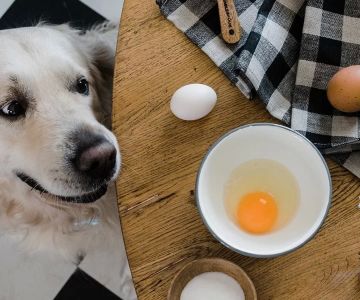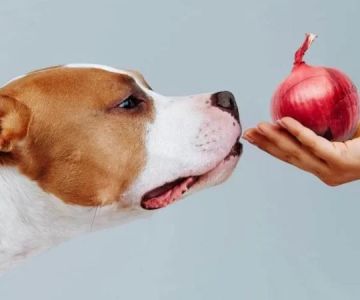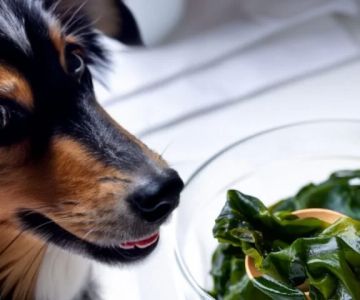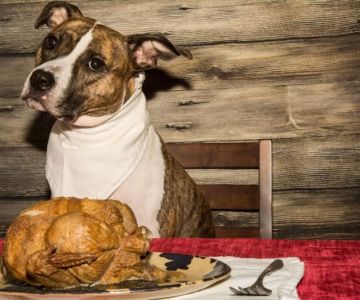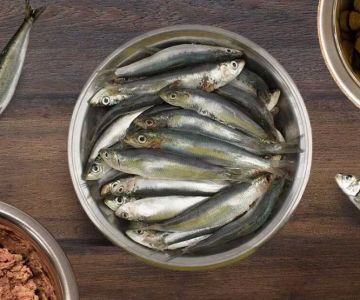- 1 - Nutritional Value of Cauliflower for Dogs
- 2 - Health Benefits of Feeding Dogs Cauliflower
- 3 - Possible Risks of Dogs Eating Cauliflower
- 4 - Safe Ways to Prepare Cauliflower for Dogs
- 5 - Real Cases of Dogs Eating Cauliflower
- 6 - Veterinary Guidance on Adding Cauliflower to a Dog’s Diet
Nutritional Value of Cauliflower for Dogs
Many pet owners ask, can dogs eat cauliflower safely? The answer is yes, when served properly. Cauliflower is packed with nutrients such as vitamin C, vitamin K, calcium, potassium, and fiber. These elements support a dog’s immune system, aid digestion, and help maintain strong bones. Unlike processed dog treats, cauliflower provides a natural, low-calorie alternative. However, because every dog reacts differently, it’s important to introduce this vegetable gradually into their diet.
Health Benefits of Feeding Dogs Cauliflower
When added in moderation, cauliflower can bring several health benefits to dogs. Its antioxidants help reduce inflammation, making it potentially beneficial for older dogs with joint issues. The high fiber content supports healthy digestion, which may help dogs prone to constipation. Additionally, cauliflower is a great choice for overweight pets because it is filling yet low in calories. Owners who aim to provide healthier snacks often find that replacing fatty biscuits with vegetables like cauliflower helps improve their pet’s long-term health.
Possible Risks of Dogs Eating Cauliflower
Despite its benefits, feeding too much cauliflower may cause digestive problems such as gas and bloating. Dogs with sensitive stomachs might react negatively, leading to discomfort at night or changes in stool consistency. Raw cauliflower, in particular, can be harder to digest. One Labrador owner shared online how their dog experienced flatulence and mild diarrhea after eating a large portion of raw cauliflower. This shows why moderation is key and why veterinary advice is valuable if your dog has recurring issues after eating new foods.
Safe Ways to Prepare Cauliflower for Dogs
The way cauliflower is prepared makes a big difference in safety. Steamed or boiled cauliflower without added salt, butter, or spices is the safest option for dogs. Raw cauliflower can be given in small bite-sized pieces but should be introduced slowly. Cooked cauliflower is easier to digest and less likely to cause stomach upset. Avoid seasoning with garlic or onion, as these ingredients are toxic to dogs. Owners who take a few minutes to prepare cauliflower properly can enjoy the peace of mind that they are giving their pets a safe and nutritious snack.
Real Cases of Dogs Eating Cauliflower
Real-life stories illustrate how dogs respond differently to cauliflower. A beagle owner reported their dog enjoyed small steamed cauliflower florets as training rewards, with no side effects. On the other hand, a Golden Retriever’s drooling increased after eating too much cauliflower, and a vet later explained it was due to mild stomach irritation. These examples highlight that while cauliflower is generally safe, it should always be introduced in moderation and monitored carefully.
Veterinary Guidance on Adding Cauliflower to a Dog’s Diet
Veterinarians generally agree that cauliflower can be a safe and healthy treat for dogs if prepared correctly. At Hidden Brook Veterinary, professionals often recommend using vegetables like cauliflower as part of a balanced diet, particularly for dogs needing weight management. However, they also stress that cauliflower should not replace complete meals, as dogs require protein and fats for energy. If your pet experiences drooling, bloating, or unusual behavior after eating cauliflower, a veterinary checkup is strongly advised. By combining moderation, proper preparation, and expert advice, owners can ensure that cauliflower enhances their dog’s diet without causing harm.





